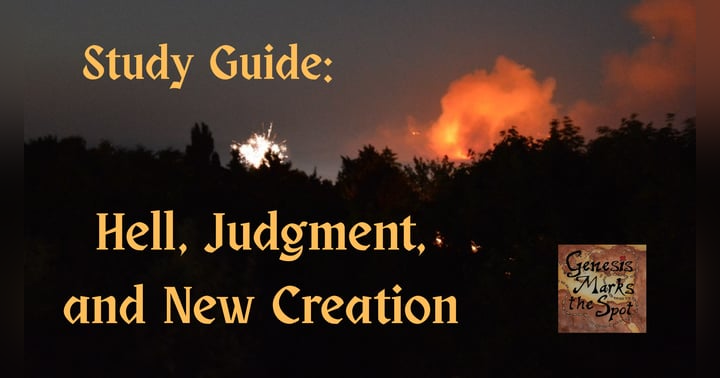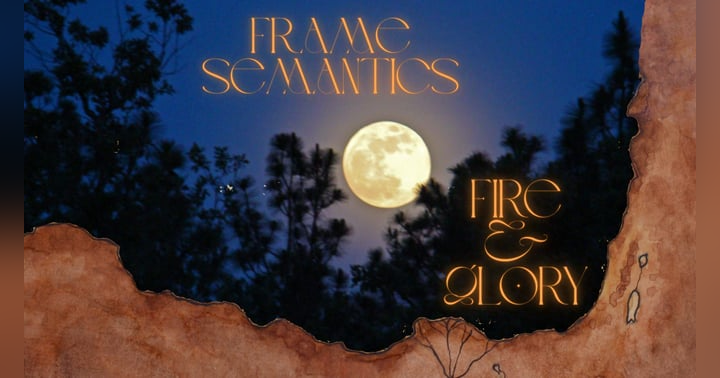Beyond the Salvation Wars by Matthew Bates — A Review and Reflection

Apologies for the delay in writing this, but Beyond the Salvation Wars by Matthew W. Bates is a book that merits deep reading and even deeper reflection. I’m definitely not done with that, but it’s high time to put a few words out for this book and encourage you to pick up a copy. While I could write pages more, I’ll aim to cover a bit of key ground for now--though, if you know me, this book is bound to come up again in conversation in important ways.
(A teaser: as we’re currently in the flood narrative in the podcast--even though it’s easy to forget with all the rabbit trails LOL--I fully intend to dive into the theme of baptism, which is something that I think this book will help in that conversation. So please look forward to that!)
Setting the Scene: Bates and the Faith-as-Allegiance Framework
If you’ve tracked with Bates' previous work, you know he’s been one of the leading voices in articulating the idea of faith as allegiance. This is remarkably similar to Dr. Michael Heiser’s concept of “believing loyalty”--a faith that is far more than mental assent, but an embodied, covenantal, ongoing trust and commitment to King Jesus. That concept has shaped my own walk deeply, and it’s foundational to understanding this book.
In Beyond the Salvation Wars, Bates builds on his earlier work (see Gospel Allegiance) by engaging even more directly with theological fault lines between Protestants and Catholics. That’s…a bold move, honestly. And a much, much needed one!! He offers not only a diagnosis of inherited doctrinal weaknesses, but a constructive proposal toward unity rooted not in compromise, but in deeper fidelity to Scripture’s language, context, and purpose.
What the Book Actually Does
Let’s be clear: this book isn’t a manifesto of theological superiority. It’s an invitation--firm and sometimes provocative, yes--but an invitation nonetheless. Bates is not suggesting he alone has “discovered” the gospel. Quite the opposite: he recognizes that the creeds of historic Christian traditions all affirm Christ as King and Lord. What he does challenge is the reductionism that has overtaken our understanding of salvation, and the detachment of “faith” from its biblical moorings.
He asks hard questions:
- When does salvation begin?
- What role do baptism, election, regeneration, assurance, and justification really play?
- Can we lose salvation--and if so, how does that align with allegiance to Jesus as Lord?
These questions aren’t new. But Bates approaches them by returning to Scripture and early Christian writings, not as a systematic theologian defending his turf, but as a biblical theologian asking us to look again--with humility.
Not Everyone Likes the Invitation
And now for the pearl-clutching. Both the initial Gospel Coalition review and a recent SBC panel discussion (here) are, quite frankly, textbook examples of bad faith responses. Rather than engaging with Bates’ arguments directly, they mischaracterize his project as a “new gospel” or accuse him of theological novelty.
At best, these critiques miss the heart of Bates’ argument; at worst, their misrepresentation of him poisons the well for myriads of people in ways that derail needed conversation--and this makes the problems even more pronounced. (TGC article is the first result that shows up after the Amazon book link!! ...Before, even, Bates' own posts and thoughts.) I suggest that these are examples of why this book is so badly needed. Can we just listen to one another instead of lobbing theological grenades?
I think it’s obvious why TGC and the panel mentioned above have issues with what Bates is saying--it’s because they believe their formulation of the gospel is THE gospel. And so, you know…if that’s what you think, I get why you’d have such a reactive response. They believe “the gospel” is “under threat” because these are traditions which claim “the gospel” is that we are saved from our sins and saved from the wrath of God. Bates, instead, is centering the gospel on the person of Jesus and the message of who he is and how that information alone should have us scramble to follow him. (Let me ask a real question--do you really want be in the position saying that it's a bad move to put "Jesus is King" as the primary point of the gospel?...)
Here’s the thing…if you want to go toe-to-toe with what Bates is saying, you need to do more than fall back on your tradition and gasp about a “new” gospel, because if you’re not doing the kind of exegesis that Bates is doing, you’re not even playing on the same field. If you've got some exegetical points to bring up, let's hear them!
If you’ve listened to my work, you know that I believe the biblical authors are communicating something that is far closer to the work of Matthew Bates than the work of the Gospel Coalition. One of these things is not like the other. Are you exegeting biblical theological context…or are you insisting on systematics as a hermeneutical foundation? It’s a simple question.
Some theological thoughts in solidarity with Bates: While, YES, praise God!, our personal salvation from sin is a result of the gospel, it is not the gospel itself. (And you can note that I’ve discussed lately that absolutely God has and displays wrath, but this wrath does not come about as a necessary result of some dispassionate scales of justice. It comes because God cares so deeply for us that he wants to provide restoration and for us to turn to him in allegiance.) Saying these things should not be a threat to good doctrine and theology.
At any rate, I will stand my ground that Bates is not rejecting orthodoxy; he’s re-contextualizing it--in a very, very needed way. He’s working to help the church recover what has often been lost in our tradition-bound theologies: the lived, relational, covenantal nature of faith.
Misrepresentation doesn’t help the church. It distorts conversations that we need to be having. And shutting the door to these conversations--because they threaten our doctrinal identity--hurts our collective witness. If someone says something you disagree with, here’s an idea: listen instead of react. Get curious and ask real questions and talk about it rather than slamming the door and putting your fingers in your ears.
Why This Book Matters
What I most appreciate about Beyond the Salvation Wars is its deep commitment to biblical theology. Bates doesn’t ask us to jettison our traditions, but to examine them in light of the biblical text and the ancient context of the early church. That’s not a threat to discipleship and critical thinking and deep study...all of which we should be actively engaged in doing.
Yes, it’s uncomfortable. Yes, it calls us to humility. But isn’t that exactly the posture we’re called to take as followers of Jesus?
I’ve been personally encouraged by Bates’ irenic and thoughtful treatment of Catholic positions, especially his correction of popular Protestant misrepresentations (like the idea that the Catholic Eucharist is a "resacrifice" of Christ--it’s not). His treatment of baptism and justification sparked fresh thinking for me, and while I don’t land everywhere he does, that’s not the point. The point is: this book made me think. And that’s a gift…one which shouldn’t be rejected.
Another side thought…I’m also struck by his observation that the Eastern Orthodox Church seems to have retained more of the "kingship" element in its theology and worship. This suggests that some of our “wars” in the West are rooted in problems of our own making. There's much to explore here, and I hope readers will take up that invitation.
A Final Word: Let the Conversation Continue
We don’t have to agree with everything Bates says. But we ought to be willing to listen. Please stop slamming the door on hard conversations. If we can’t even entertain a new perspective without feeling personally threatened, we’re not defending the faith--we’re defending ourselves.
So thank you, Matthew Bates, for doing the hard and sometimes thankless work of challenging both Protestant and Catholic errors with clarity and conviction. Thank you for pointing us back to Scripture, not as a weapon, but as a foundation.
May this book be a spark, not a wedge. May it help us learn how to think better, talk better, and listen better for the sake of unity in Christ.
And please--for the love of all that is good and holy--let’s stop calling every new articulation a “different gospel” just because it’s unfamiliar.
Let’s keep thinking. Let’s keep talking. And let’s keep re-centering everything on King Jesus.








